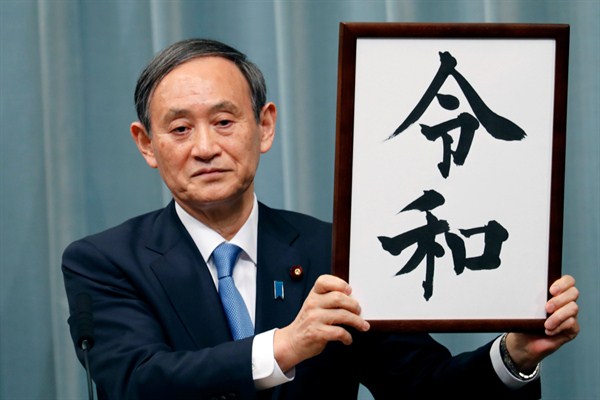“Eras” in a country’s history are usually determined in retrospect, or labeled metaphorically after a seminal event. But in Japan, the term is quite literal, corresponding to the reign of a new emperor. A new era is about to begin there, and it has a name already.
For the first time in more than 200 years, Japan’s emperor is abdicating. On April 1, exactly one month before the coronation of the emperor’s son, Crown Prince Naruhito, on the Chrysanthemum Throne, the chief cabinet secretary unveiled the name that had been the subject of feverish speculation across Japan. Yoshihide Suga held up a frame revealing the two characters that read “Reiwa,” the name chosen by the current government from the choices prepared by a panel of experts for the new era, or gengo. Though no longer seen as god-like, the emperor is still an enormously important and revered figure in Japan, as the symbolic sovereign and head of state.
Immediately after the unveiling, experts set out to decipher the larger meaning of the new name. Prime Minister Shinzo Abe spoke in poetic tropes about its significance in a news conference Monday, but others detected something else: a sign of a country drifting to the right, uneasy with current regional and geopolitical trends, and a government eager to boost nationalist undercurrents in a state that has tensely navigated between tradition and modernity.

